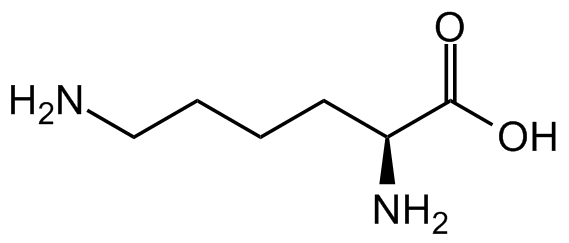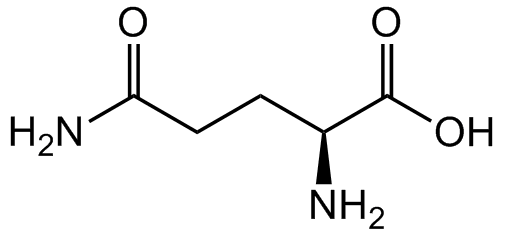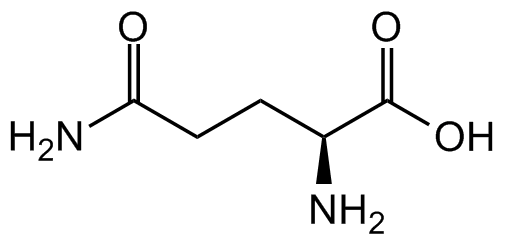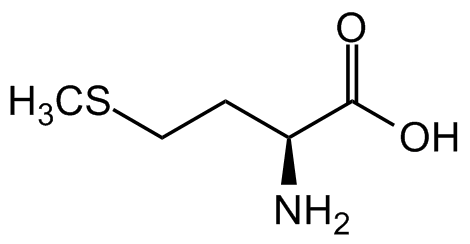
Chemical Structure
L-Lysine [56-87-1] [56-87-1]
CDX-L0110
CAS Number56-87-1
Product group Chemicals
Estimated Purity>98%
Molecular Weight146.19
Overview
- SupplierChemodex
- Product NameL-Lysine [56-87-1] [56-87-1]
- Delivery Days Customer10
- CAS Number56-87-1
- CertificationResearch Use Only
- Estimated Purity>98%
- Molecular FormulaC6H14N2O2
- Molecular Weight146.19
- Scientific DescriptionChemical. CAS: 56-87-1. Formula: C6H14N2O2. MW: BD9837. L-Lysine is an essential alpha-amino acid, which is encoded by the codons AAA and AAG. It is a key building block in protein synthesis in which it acts as a base. Lysine residues are useful in many cellular processes, due to their ability to accept a wide variety of post-translational modifications. These modifications include acetylation, methylation, ubiquitination, sumoylation, neddylation, biotinylation, pupylation and carboxylation. L-lysine is an essential amino acid that cannot be synthesized by humans and mammals through transamination. Lysine plays a pivotal role in different processes inside the human body, such as proteinogenesis, catalysis, fatty acid metabolism, histone modification, polypeptide crosslinking, calcium homeostasis, and acts as a nucleophile in enzymatic reactions. Because of its pivotal role in promoting growth and development, enhancing immunity, and preventing cardiovascular and cerebrovascular diseases, L-lysine is used in food health care, feed additives and pharmaceutical preparations. - L-Lysine is an essential alpha-amino acid, which is encoded by the codons AAA and AAG. It is a key building block in protein synthesis in which it acts as a base. Lysine residues are useful in many cellular processes, due to their ability to accept a wide variety of post-translational modifications. These modifications include acetylation, methylation, ubiquitination, sumoylation, neddylation, biotinylation, pupylation and carboxylation. L-lysine is an essential amino acid that cannot be synthesized by humans and mammals through transamination. Lysine plays a pivotal role in different processes inside the human body, such as proteinogenesis, catalysis, fatty acid metabolism, histone modification, polypeptide crosslinking, calcium homeostasis, and acts as a nucleophile in enzymatic reactions. Because of its pivotal role in promoting growth and development, enhancing immunity, and preventing cardiovascular and cerebrovascular diseases, L-lysine is used in food health care, feed additives and pharmaceutical preparations.
- SMILESNCCCC[C@H](N)C(O)=O
- Storage InstructionRT
- UNSPSC12352200







![L-Lysine [56-87-1] [56-87-1]](https://www.targetmol.com/group3/M00/03/87/CgoaEWY7Ts2EATPtAAAAAAM0pLo342.png)